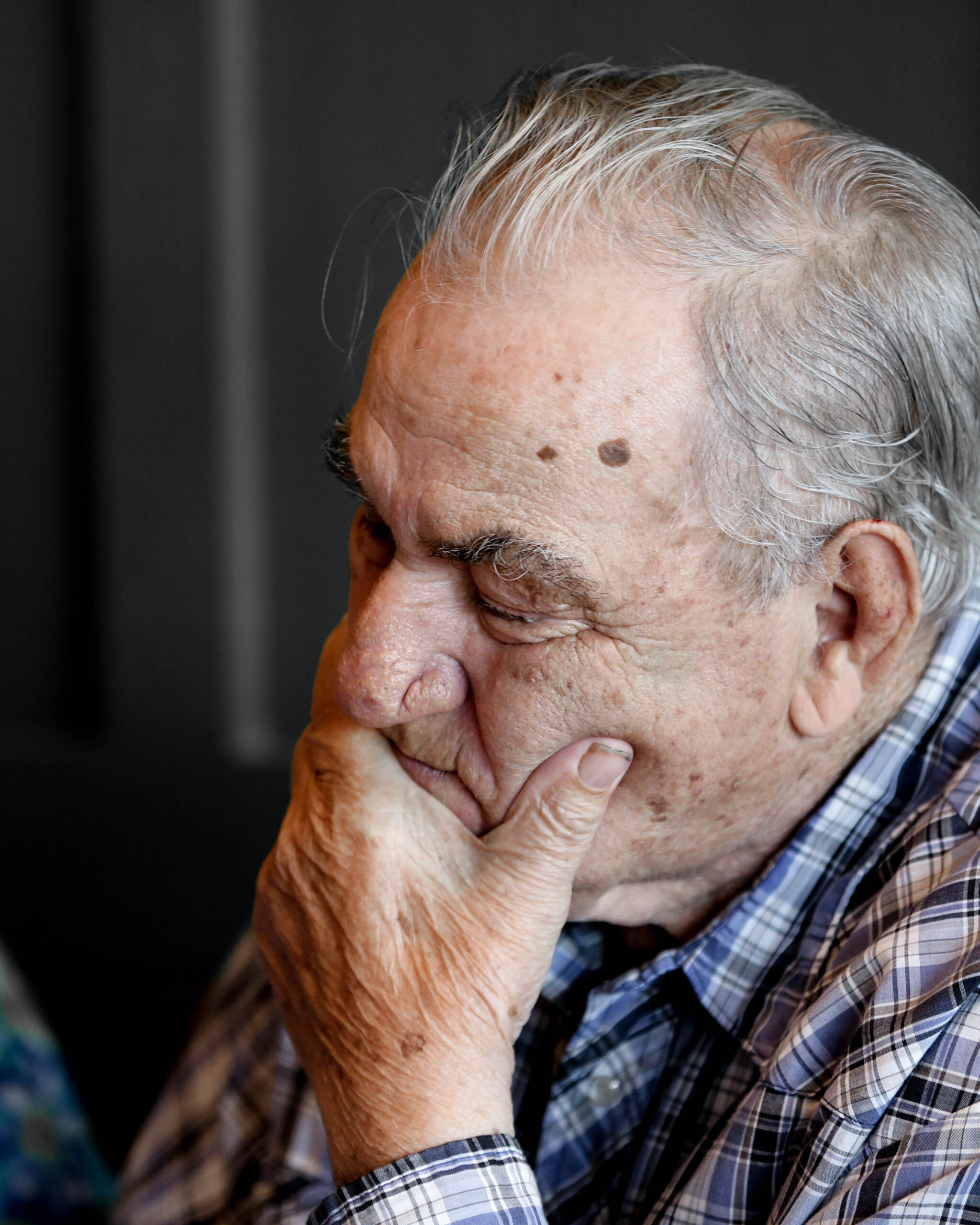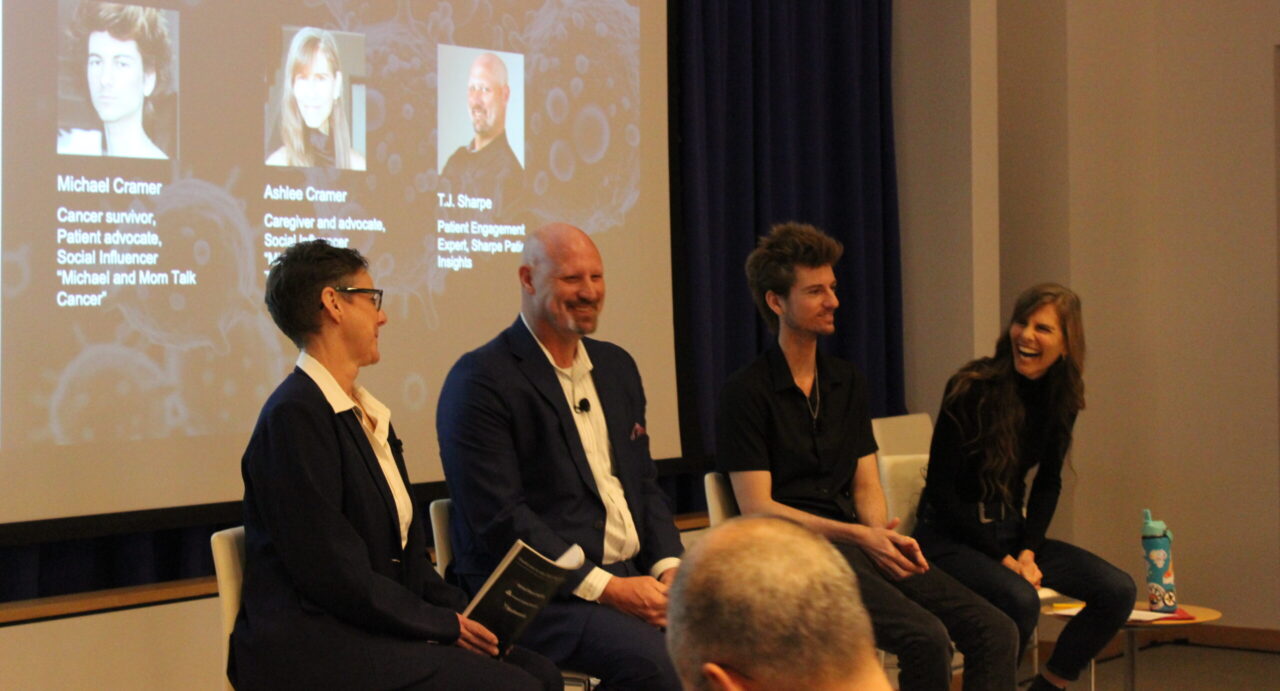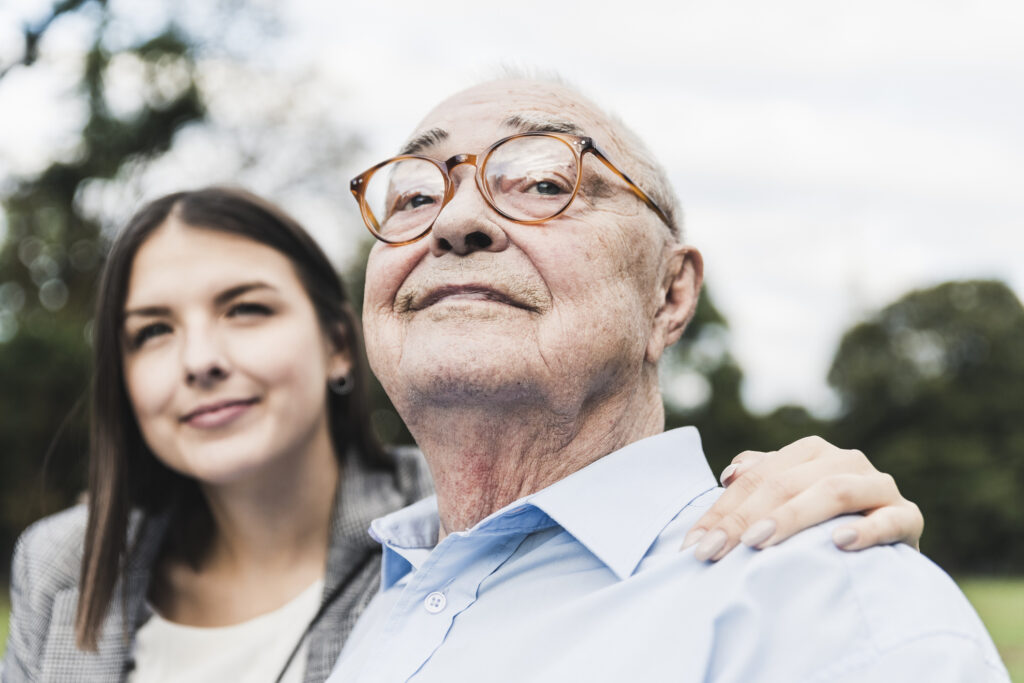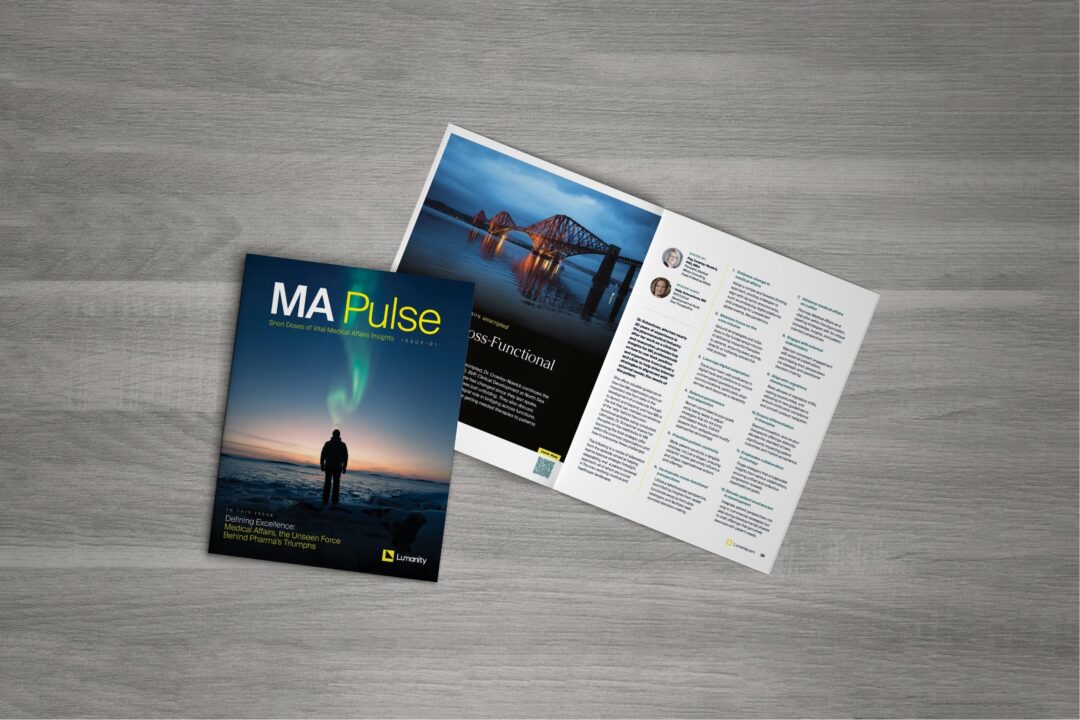Authored by Cello Health, now part of Lumanity
Living in uncertain times
We are in uncharted territory. The full impact of the COVID -19 pandemic has yet to be realised. No one quite knows what the ‘new normal’ will look like or, importantly, when it will come about. But the vital role of healthcare services, Pharma and research is central to recovering from the pandemic.
The sudden shutdown of many health services has meant that many people have been struggling to access the cancer treatment that they need. There is a backlog of health needs building amongst those already diagnosed with cancer.
In addition, cancer screening programmes have been disrupted, impacting the diagnosis rates of breast, bowel and cervical cancer. This means that when patients are eventually diagnosed they will have progressed to later stages.
In the UK, NHS figures make for disturbing reading.
’106,535 urgent cancer referrals were made by GPs in England in May 2020, down from 200,599 in May 2019 – a fall of 47%’
Other new research published in The Lancet Oncology journal ‘suggests delays in diagnosis and treatment of two months could lead to a substantial proportion of early stage tumours progressing from having curable to incurable disease’.
Other estimates suggest excess deaths from all types of cancer (due to coronavirus delays) could be as high as 35,000 in the UK within a year.
The picture in the US is stark with a decrease in breast cancer (-89.2%) and colorectal cancer (-84.5%) screenings*. An article in An American Society of Clinical Oncology Journal concludes, “Trends seen in the CCRN clearly suggest a significant decrease in all cancer-related patient encounters as a result of the pandemic. The steep decreases in cancer screening and patients with a new incidence of cancer suggest the possibility of a future increase in patients with later-stage cancer being seen initially as well as an increased demand for cancer screening procedures as delayed tests are rescheduled.”
The pandemic has also adversely affected clinical trials with some hospitals deciding to suspend all trials and recruitment, while others have maintained people on treatment. How to keep patients on trials safely has been challenging. Trials with patients on advanced CAR T cell therapies which involve modifying a patient’s own immune system have needed to be stopped as these patients required an ITU bed to be on stand-by – and these were all reserved for COVID-19 patients.
These consequences of the virus will take some time to be sorted out. How will the backlog be addressed? What will be prioritised as services and trials restart? How can the system be helped to COVID-proof itself against a second peak or future pandemics?
These are massive questions for which of course there are no simple or immediate answers, but as the solutions emerge it is vital that Pharma understands how things are evolving and supports the recovery. What is clear though is that patients with cancer have been, and will continue to be, greatly affected.
What has been the cancer patients’ experience of the lockdown?
For cancer patients, the lockdown has been multi-faceted in its impact – clinical, emotional, social, practical and financial.
The clinical
Where possible, the hospitals and doctors have tried to continue with chemotherapy, radiotherapy and surgery but in reality systems aren’t working as usual and patients have faced disruption and delays they can ill afford. Some patients have needed to have their treatment changed or they have had one treatment prioritised over another. Many on clinical trials have had their treatment stopped
The emotional
Coronavirus has ramped up the emotional stress for patients with cancer in many ways. They are aware that they have weakened immune systems and so are at higher risk of getting coronavirus and need to be shielded. In addition, their anxiety has been hugely heightened by the knowledge that they may not be receiving the optimum treatment for their condition anymore in a timely manner. They fear delays will have damaged their prognosis
The social
Social isolation has hit those with advanced cancer, who have a shortened life span, especially hard. I was talking to two men in the States just recently which brought this home to me – one, a younger man in his 50’s, was devastated that his bucket list trip of a lifetime with his family was now no longer going to be possible; another older man was missing out on precious time with his grandchildren. These are painful outcomes of the virus – there is no easy solution or compensation for such losses.
The practical
Managing and attending hospital appointments, adhering well, managing side effects, often boil down to practicalities. How practical is it for someone to get to a hospital during the pandemic even if they are willing to go? Is there someone in their social bubble to support them? Or are they alone, unable to drive, struggling to access day to day needs? These matters all impact on the ability and willingness of a cancer patient to stay engaged with their treatment and to ‘keep fighting’.
The financial
It is becoming clear that the economic impact of the pandemic is unequalled. The scale of the knock-on effect on the economy, healthcare systems and the public psyche is in a state of flux. Healthcare budgets may be differentially affected, ability to access more expensive treatments may be damaged. Where access to treatment needs to be covered by insurance, unemployment and loss of income will affect what patients can afford in the way of treatment, be it a prescribed therapy or an alternative therapy.
Listening to the Patient Voice in the Pandemic
It is important to recognise that the pandemic is leading to people living with cancer making decisions differently about treatment. They are prioritising factors differently to before the pandemic. Some continue to prioritise efficacy above everything else; others though are opting for quality of their remaining life over time. How they make this decision is deeply personal and influenced by many interlocking factors including life stage, support network and personal resilience.
For example, in the light of the pandemic it may be that cancer patients continue to prefer to avoid trips to the hospital to mitigate risk of infection and to stay with family as much as possible. Chemotherapy may become a less favoured option with patients preferring to minimise immunosuppression for fear of another outbreak.
As we move together through the pandemic, it is vital to understand how the cancer landscape is shifting on every level including how patients with cancer are changing. Just what are they thinking and feeling at the moment? How are they behaving differently compared to before the pandemic or in its early months? Do they want to return to the pre-pandemic paradigm? Do they want to keep certain aspects of the current situation once the threat of the virus is passed? What do they want to change permanently about their treatment?
Across the board in our studies, we are seeing patients reconsidering their priorities around treatment and engaging in a more proactive way in decision making. Whilst undoubtedly COVID-19 has brought multiple challenges for those living with cancer, times of such change can also result in positive transitions. Keeping a finger on the cancer patients’ ‘pulse’ will enable Pharma to anticipate, shape and support cancer patient needs to ensure they are informed, reassured and able to stay on track with treatment in the new world we are entering.
If you, or a loved one, is living with cancer, there is help and support available:
https://www.macmillan.org.uk/coronavirus/cancer-and-coronavirus
https://www.cancerresearchuk.org/about-cancer/cancer-in-general/coronavirus/cancer-treatment
https://www.cancersupportcommunity.org/coronavirus
https://www.cancer.org/about-us/what-we-do/coronavirus-covid-19-and-cancer.html
Jane Barrett, Patient Insights Master Practitioner
{ Diagnosis and treatment of two months could lead to a substantial proportion of early stage tumours progressing from having curable to incurable disease https://www.thelancet.com/journals/lanonc/article/PIIS1470











